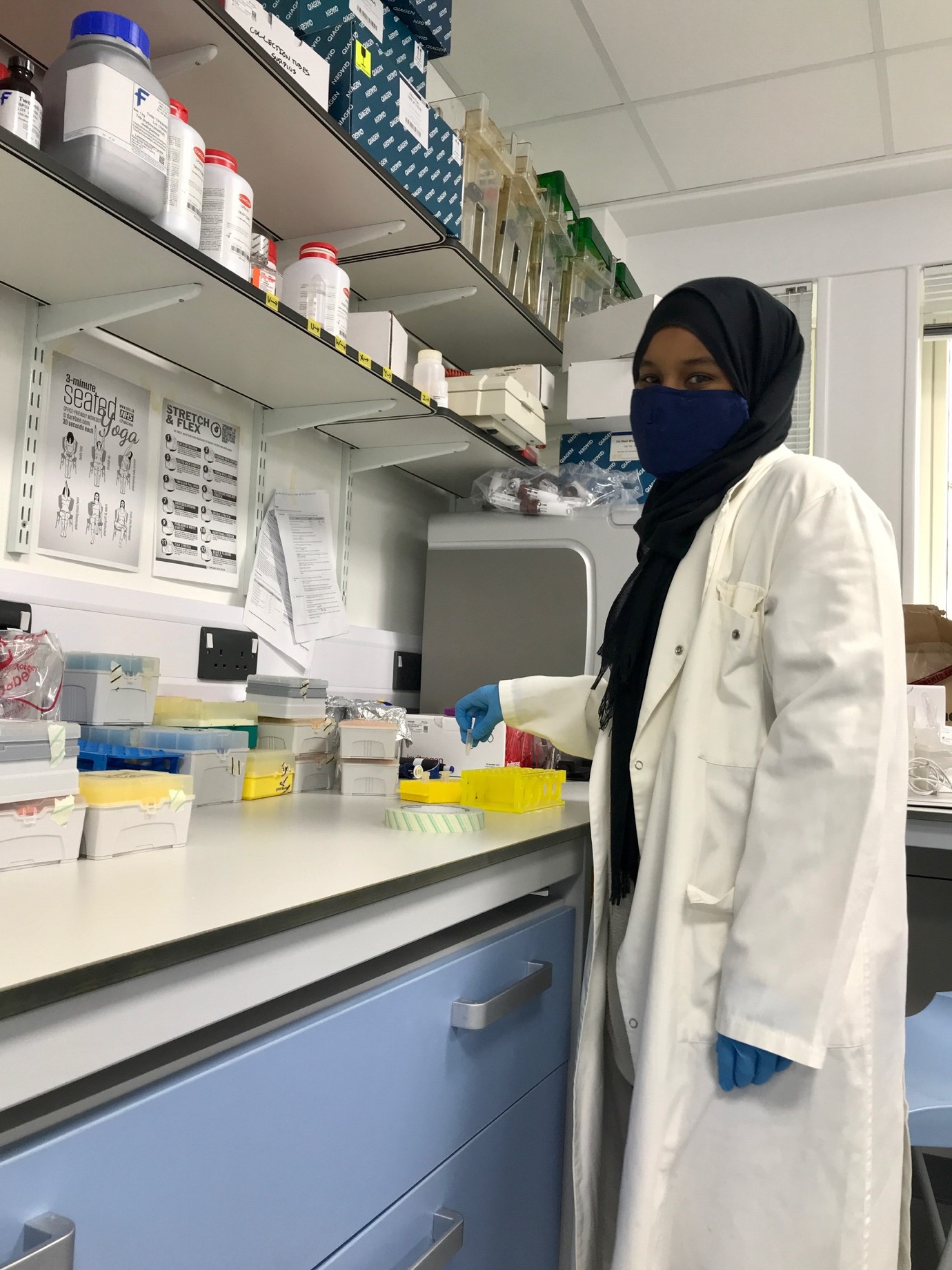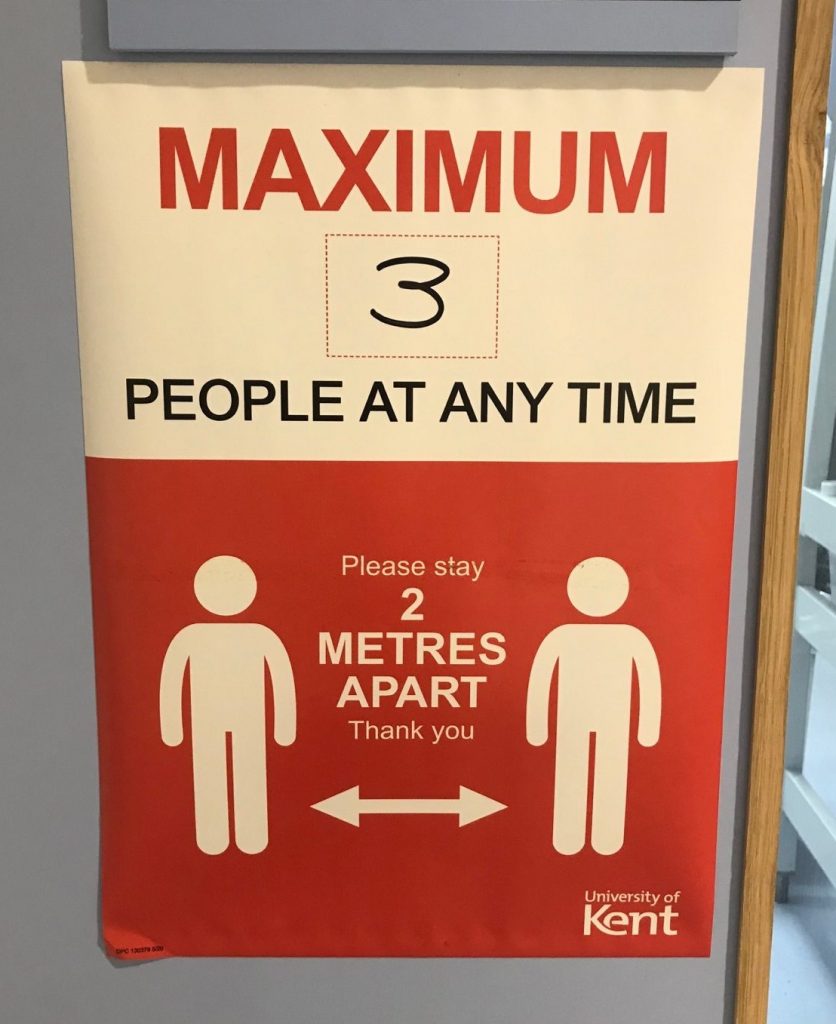
Sadiya Maxamhud joined the GCDC in September 2020. Sadiya’s PhD is supervised by Dr Anastasios Tsaousis in the School of Biosciences, and investigates diarrhoeal diseases in developing countries. She tells us about her project and doing lab work during a pandemic.
“My project initially included fieldwork which would have consisted of various types of data collection in both Bangladesh and Thailand. However, due to the COVID-19 pandemic, travelling is currently prohibited until further notice. Nevertheless, various samples have been sent to me from Thailand, which will allow me to start answering fundamental questions concerning the source and transmission dynamics of diarrhoeal diseases. Further samples from Bangladesh, Algeria, as well as the Democratic Republic of the Congo (DRC), will also be sent to the laboratory in due course.
I have had the chance to be able to work and continue to conduct research related to the global challenges issues during the pandemic. Due to the lockdown and the increasing cases of Covid-19 at the end of 2020, stricter restrictions were set by the University. This included a maximum limit being established in the laboratory to maintain social distancing and because of this, the laboratory is currently only able to hold a maximum of three people. An online calendar has been created to help deal with this issue. Due to these restrictions, I have had to develop a personal system for myself in order to be efficient with my work while still following the university restriction guidelines. In addition, testing for Covid has to be executed at least twice every week at the University of Kent’s asymptomatic testing site.

A Covid-19 safety sign in the lab. Photo: Sadiya Maxamhud.
With my supervisors’ agreement, I am also currently working on parallel projects relating to global challenges that further support the UN’s Sustainable Development Goals (SDGs), whilst simultaneously developing my research and laboratory skills. I am working together with collaborators from the Higher National Veterinary School in Algeria, to detect the presence of Cryptosporidium parasites in the stool and intestinal scrapings from various different fish species. The prevalence of these parasites will provide further insights on the contamination levels of lakes, rivers and dams in Algeria.
In addition to this, I will also be commencing another project where the aim is to detect SARS-CoV-2 on animal faecal samples from Ghana, Bangladesh, and the DRC to investigate the transmission dynamics in the rural areas of these countries. Lastly, I am currently also assisting in a project (in collaboration with a PhD student from the School of Engineering and Digital Arts) to develop an automatic easy-to-use detection system for parasites in stool samples.”